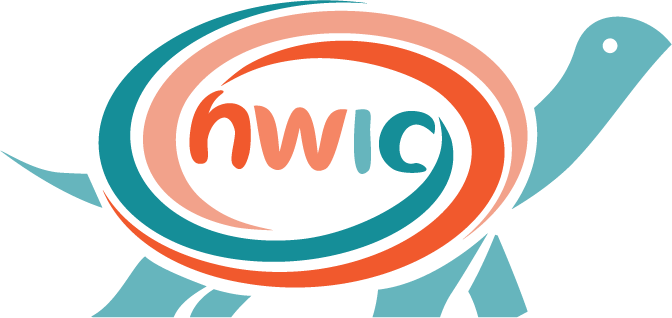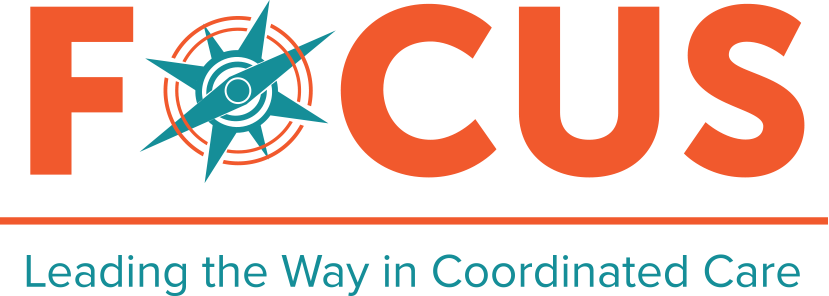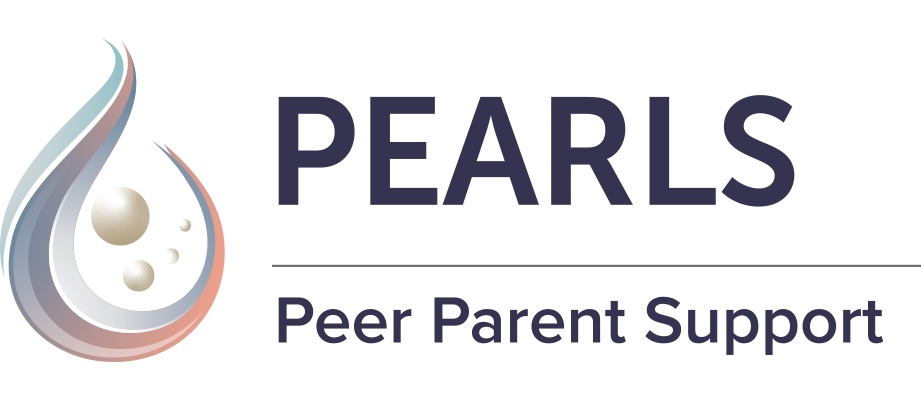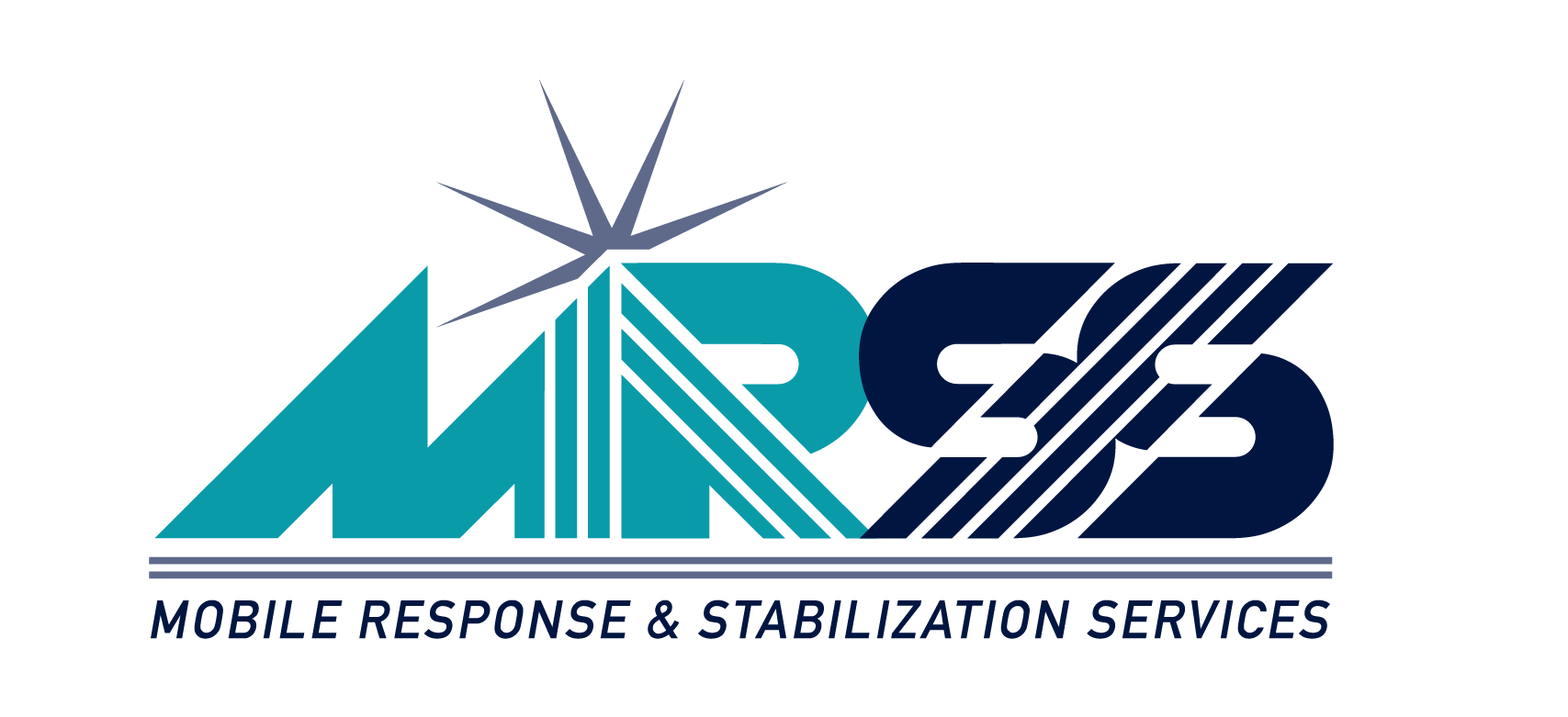System Design & Implementation
Evidence-informed strategies are essential to ensure that systems reform efforts maximize resources and improve supports and services for children, youth, young adults, and their families. We provide training, technical assistance, and coaching at the system and practice levels to support states, localities, tribes, and organizations in implementing and sustaining effective services and interventions with public child- and family-serving systems. We also work to design and install the necessary service array and system structures to ensure better outcomes for children, youth, young adults, and families. We use a suite of evidence- and practice-informed readiness and system design tools to guide system and provider leadership in assessing current system/organization structures and prioritizing strategies to improve outcomes for identified populations.
Resources
Read why system structure matters on our National Wraparound Initiative blog.
Systems of Care
Learn more about essential infrastructure components in system design through our interactive online course on Building Systems of Care particularly the following modules.
Module 6: Service Delivery Systems & Related Reforms
Module 7: Planning, Management & Governance
Module 8: Array of Services and Supports within a System of Care
Module 12: Screening, Assessment & Evaluation Approaches in Systems of Care
Module 16: Data-Driven Systems of Care
Foundational to our work are two frameworks:
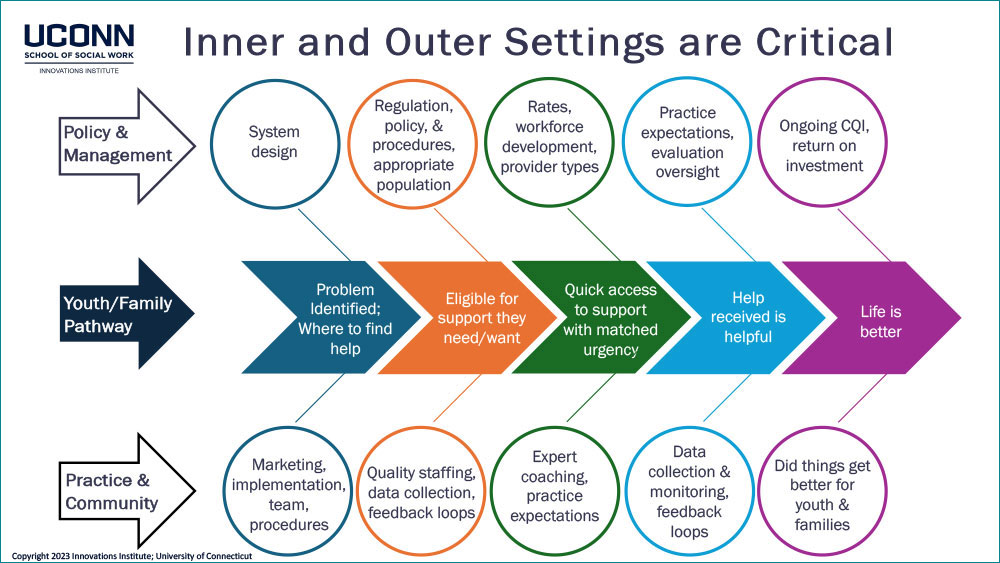
Implementation Science
The scientific study of methods to promote the systematic uptake of research findings into routine practice to improve the quality and effectiveness of behavioral health systems and services. The field of implementation science, originally developed to facilitate the spread of evidence-based practices, provides a framework for successful system reform.
Care Pathways
A visual decision-making model that sets forth the youth and family behavioral health experience within a system for a well-defined population for a specific period. At the policy and management levels, the development of care pathways can lead the way to increased coordination across systems, shared decision making, clearly established care standards across systems, and ability to fully leverage and optimize cross-system resources. At the practice and community levels, the use of care standards can be used to enhance quality and consistency of a practice or initiative, increase satisfaction, and improve outcomes for children, youth, young adults, and their families.
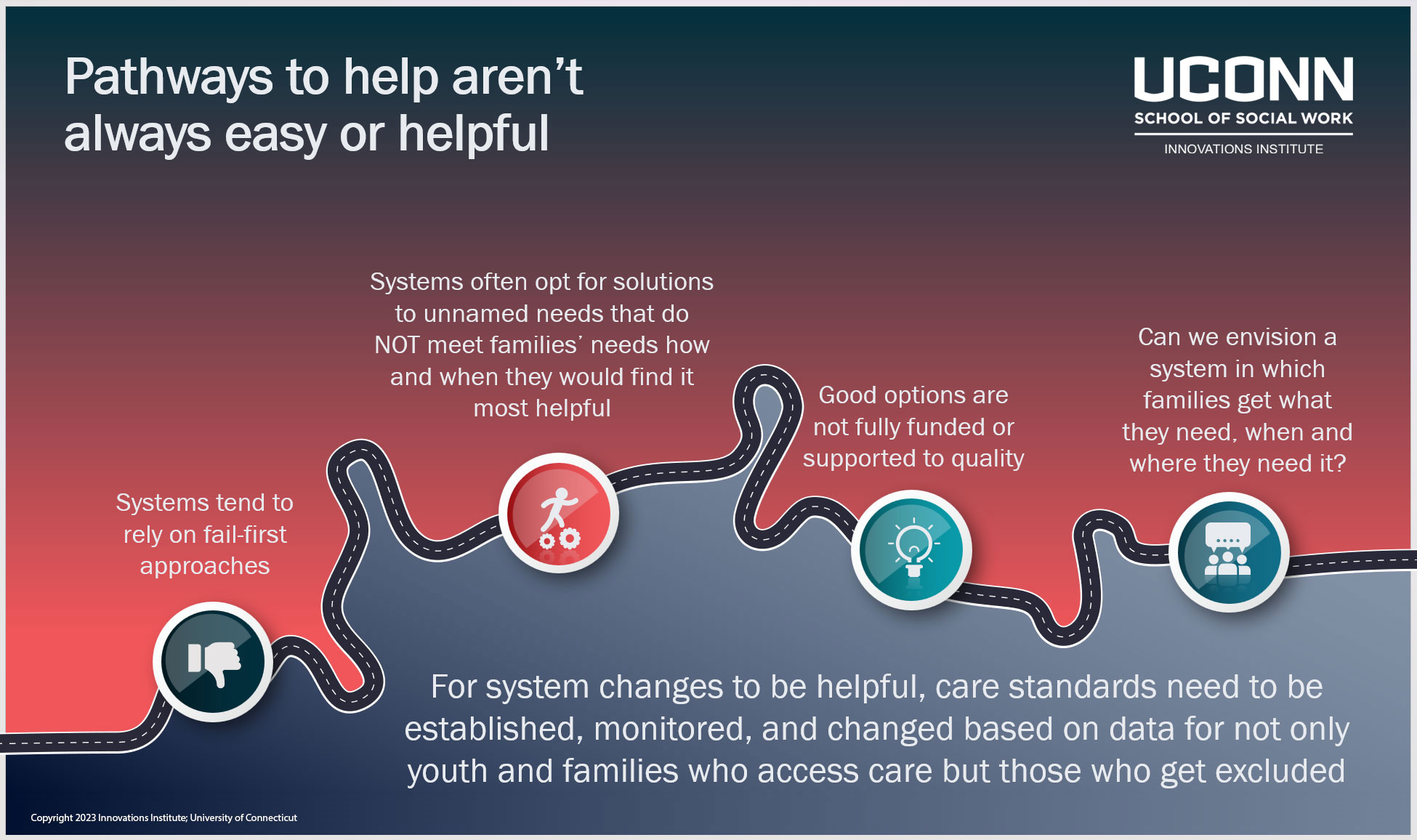
A Focus on Infrastructure
System reform processes need to be adaptable enough to meet the rapidly changing context (within states/tribes, systems, and organizations) and the needs of youth and their families. Our system design work focuses on the robust infrastructure required for standardized care pathways to be comprehensive, integrated, and adaptable to meet the evolving needs of youth and their families and providers in the care setting including technology, clinical expertise, information systems, and communication channels. This infrastructure needs to include electronic health record systems, clearly defined care standards, care coordination platforms, data analytics tools, telehealth capabilities, and secure communication channels to ensure seamless collaboration among different providers. Furthermore, an infrastructure to support effective care pathways needs to encompass training and workforce development activities for agency staff to ensure they have the necessary skills and knowledge to effectively implement and utilize the pathways. It includes standardized protocols and guidelines for care delivery, as well as mechanisms for monitoring and evaluating the effectiveness of the pathways. The infrastructure prioritizes interoperability and data sharing to enable seamless communication and coordination of care across different settings and providers. Needed considerations include reimbursement models that incentivize the delivery of evidence-based care, as well as administrative processes to ensure efficient workflow and resource allocation.

Our Models
We are dedicated to transforming child-serving systems through the dissemination of foundational/critical models. We understand the importance of nurturing and safeguarding the well-being of our children, and we believe that implementing modern approaches is essential for creating a safe and supportive environment for every family. We work to empower state leaders, organizations, and professionals partnering with families by providing them with the knowledge and tools they need to create effective and impactful systems. Through rigorous research, collaboration with experts, and innovative strategies, we have developed a comprehensive framework for modern child-serving systems. Our approach is rooted in evidence-based practices and is tailored to address the unique needs and challenges faced by systems today. Whether you are an individual, family member, organization, community member, or state leader passionate about improving child-serving systems, we invite you to reach out, because together we can create a brighter future for all families.
We support overall modern system design and readiness as part of cross-system strategic planning and, as purveyors, we support readiness and installation design for the following models.
Providing support that is intensive and individualized, focused on building sustainable local capacity to provide model-adherent, high-quality Wraparound.
Learn more about the National Wraparound Implementation Center
Modernizing traditional case management models to enhance skills around care coordination and planning for young people and their families with intermediate complex needs across child-serving systems.
Articulating and strengthening authentic and purposeful peer parent support through comprehensive training and coaching.
Meeting the unique needs of parents/caregivers when children or youth are experiencing a behavioral health crisis.
Learn more about Mobile Response & Stabilization Services (MRSS)
